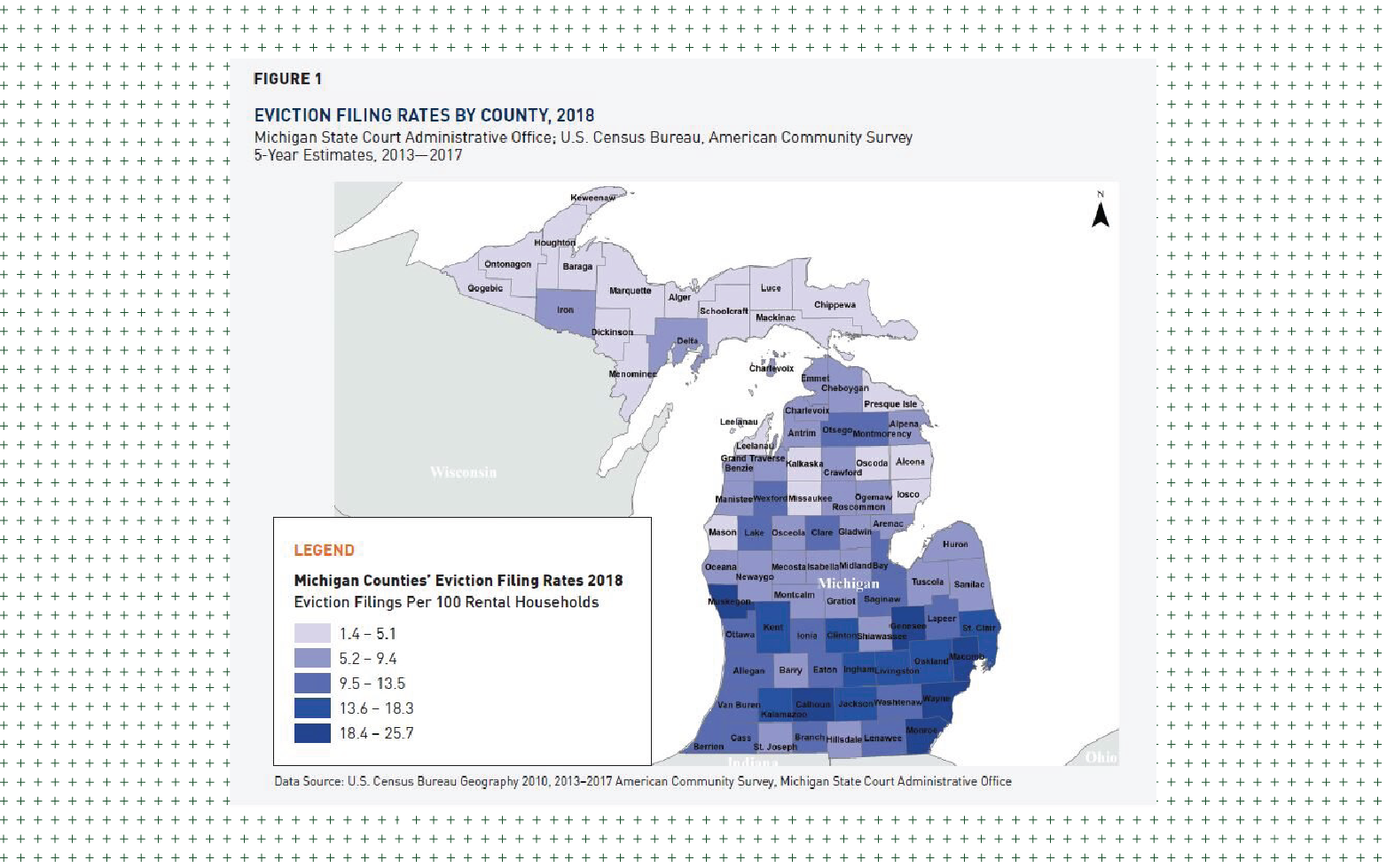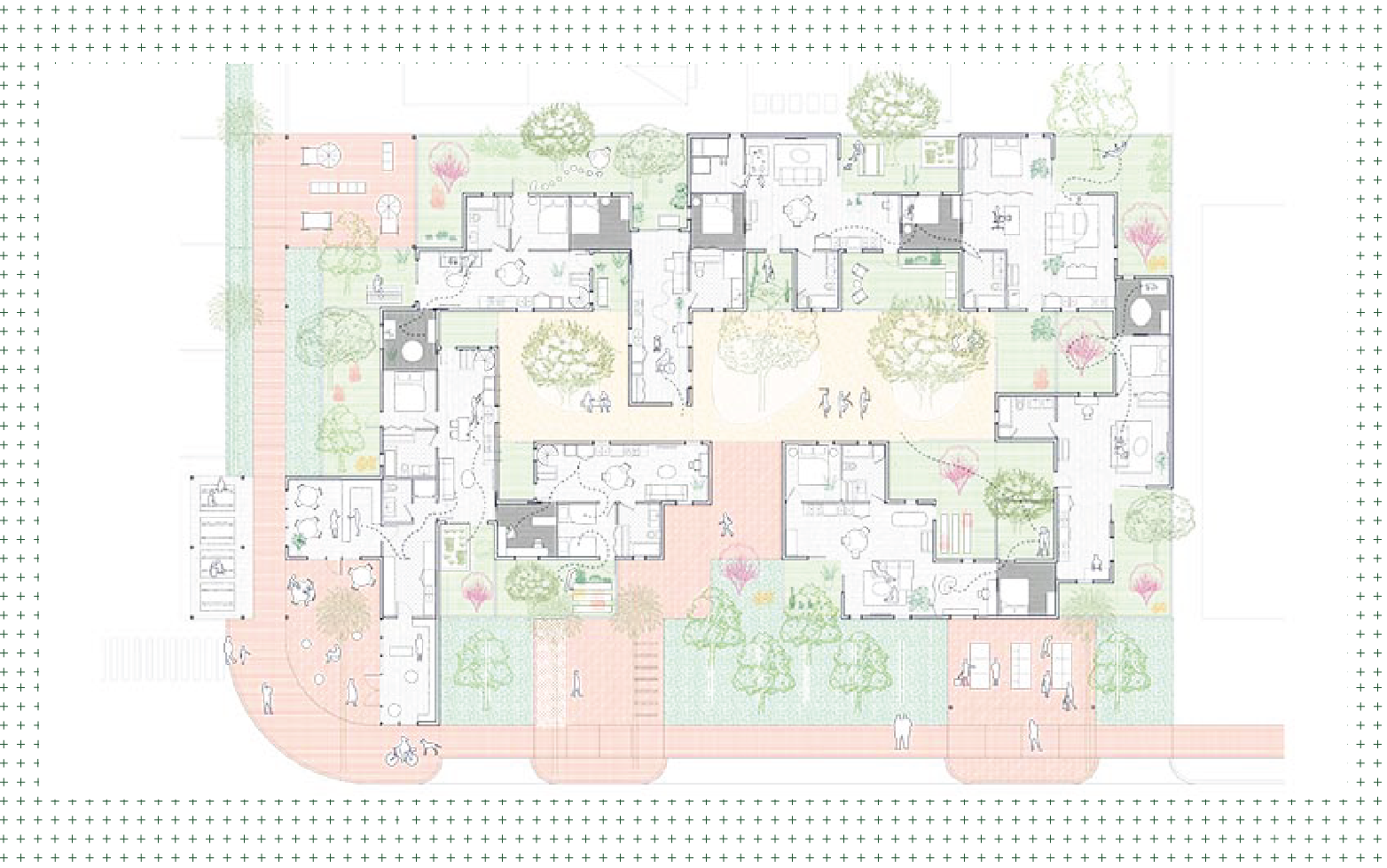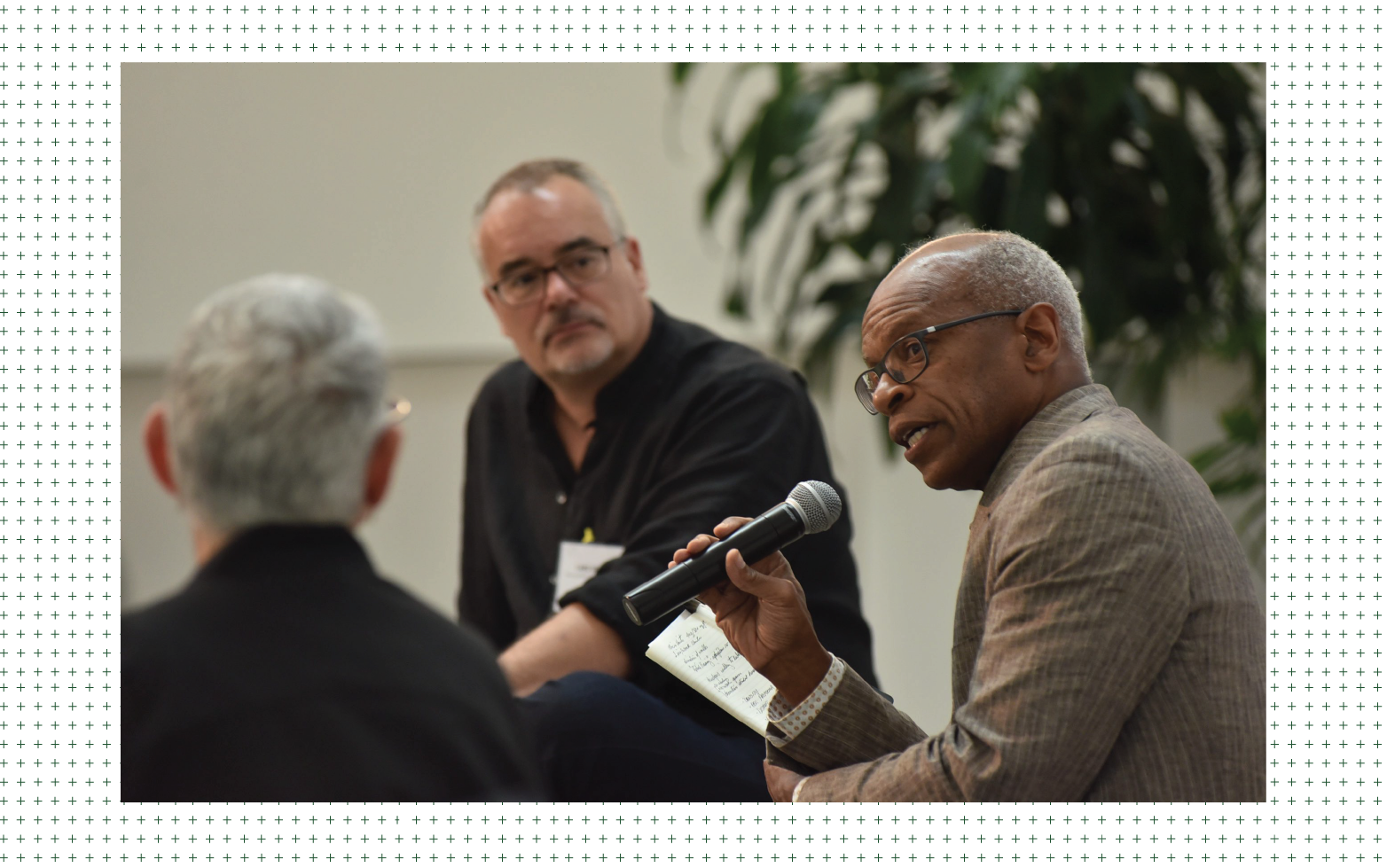Zoning Regulation & Code Innovation for Sustainable Housing Production

How can research and design practices inform efforts to reform building codes and zoning regulations to allow for flexible building types and mixed-use development?
How can those efforts improve housing affordability, reduce residential segregation, and promote a sustainable built environment?
Research: Michigan Eviction Project
Rob Goodspeed and Margi Dewer
Led by Rob Goodspeed, an assistant professor of urban and regional planning, and Margi Dewar, professor emerita of urban and regional planning, the Michigan Eviction Project was supported by a 2019 grant from U-M’s Poverty Solutions initiative in partnership with the Detroit Community-Academic Urban Research Center, part of U-M’s School of Public Health. Elizabeth Benton, from Legal Services of South Central Michigan, served as the community partner working with Goodspeed and Dewar on the project.
The research project builds on emerging scholarship to better understand the prevalence, patterns, and causes of evictions in Michigan. The project involved analyzing statewide case filing data and data collected from a random sample of eviction case records in Washtenaw and Lenawee counties. The report provides a detailed overview of Michigan eviction law and policy recommendations for local courts, municipalities, funders, and state government.
Design: How to Build Our Own Living Structures
Laura Peterson
Addressing the root of housing injustices means looking at protocols codified into the ground through zoning laws and instruments of capital.
Awarded honorable mention in the 2021 LA Low Rise housing competition, How to Build* Our Own Living Structures is a proposal for missing middle housing, re-imagined from the ground up. The design envisions what housing could be like if zoning was oriented towards empathy and kinship – at the scale of the room, the courtyard, and the neighborhood lot.
Design Assistant: Matthew Crilley
Competition Sponsor: Mayor’s Office of City of Los Angeles
Research: Research: Housing Production and the Structural Transformation of China’s Real Estate Development Industry
Lan Deng, Shillong Li, Weican Zuo, Yuan Han
This study examines the relationship between housing production and the structural transformations that have taken place in China’s real estate development industry. It first identifies how the industry has changed since the early 2000s and what factors were driving those changes. It shows that China's real estate development industry had become increasingly concentrated prior to the COVID-19 pandemic, with large firms accounting for a growing share of the country’s housing production. This was mostly due to the advantages large firms enjoy, such as access to low-cost capital, an open land market system, and the use of pre-sale business practices. An empirical analysis of 35 major cities shows that local housing production remained largely decentralized, a result of China’s rapidly rising land cost that discouraged local industry concentration. The study then discusses what these findings mean for the Chinese housing markets and the broader economies, with particular attention to how the COVID pandemic has exposed the risks associated with China’s real estate industry organization.
Event: Re: Housing Detroit
Re: Housing: Detroit brought together architects, planners, geographers, policy experts, and developers to explore solutions to Detroit’s “missing middle” density housing. The symposium and the Systems Studio are part of a five-year collaboration between the college and the City of Detroit Planning and Development Department.
Re: Housing: Detroit was co-sponsored by the University of Michigan Urban Collaboratory, the Graham Foundation, and the University of Michigan Poverty Solutions Initiative.



